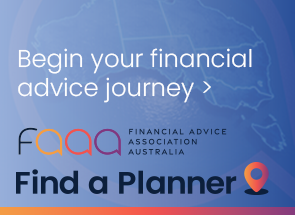For many Australians, lifestyle choices are often seen as rewards for hard work.
The big house. The new car. The overseas holidays. The designer labels.
On the surface, these purchases seem like signs of financial success but when you dig deeper, they often come with hidden trade-offs – and many don’t realise it until it’s too late.
Buying vs. affording: there’s a difference
Earning a high income doesn’t guarantee you can afford everything you want.
I often meet people earning $150,000, $300,000, even $700,000 a year, yet feeling like they are only just keeping up.
The issue isn’t income – it’s spending.
Many households end up locked into expensive lifestyles without considering:
- The full long-term cost
- The impact of interest rates and inflation
- The risk of unexpected changes to income
- The opportunity cost of not building wealth
It’s one thing to buy something. It’s another to afford it in a way that doesn’t limit your financial freedom.
What does ‘affordability’ really mean?
Affording the big house or the luxury car isn’t just about managing repayments today.
You can afford it when you can:
- Maintain your savings and investments
- Absorb unexpected expenses without stress
- Keep lifestyle choices aligned with your financial goals
- Continue progressing towards financial freedom
Without these conditions, you might be stretching beyond your limits.
The pressure of lifestyle creep
As income grows, spending tends to grow too.
It starts small – an upgrade here, a nicer holiday there – but over time, it can lead to:
- Reliance on debt
- Reduced savings
- Higher financial stress
- Limited flexibility in case of emergencies
Some clients tell me they feel like they’re working harder than ever but getting nowhere. Often, it’s not because they don’t earn enough – it’s because the lifestyle has crept up faster than their wealth.
Four questions to ask before the big purchase
Before making a major lifestyle choice, consider:
- Am I investing for my future at the same time?
If the purchase limits your ability to invest, you might be prioritising short-term enjoyment over long-term security. - Can I handle unexpected costs?
Could you manage if interest rates rose, if you lost work for a few months, or if you faced a major expense? - Is this decision aligned with my values?
Are you buying for you – or for how it will look to others? - Will I still feel free?
Financial freedom is about choice. If the purchase locks you into more work, more debt, or more stress, is it really worth it?
Finding the right balance
It’s not about never having nice things.
It’s about doing it on your terms.
When you build wealth first, you can enjoy these lifestyle choices without worrying about how to fund them.
Being intentional with money helps you:
- Avoid unnecessary debt
- Maintain flexibility
- Achieve long-term goals
- Enjoy luxuries without the pressure
A lifestyle that works for you
Ultimately, it’s about balance.
You can have the house, the holidays, and the nice things – but make sure they don’t come at the cost of your financial future.








